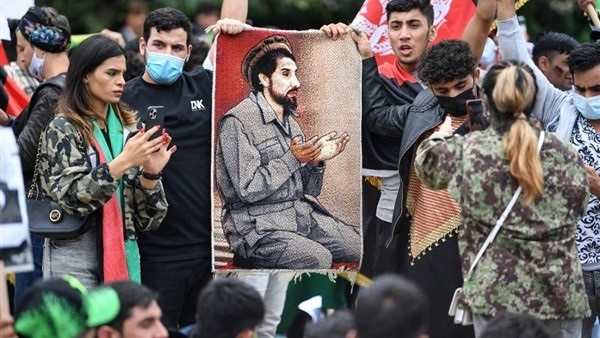Assessing the Potential Escalation of Tensions in Afghanistan Triggered by Massoud's Provocations

Ahmad Shah Massoud, the leader of the Afghan National
Resistance Front, continues his offensive against the ruling Taliban movement
in Afghanistan. Amidst the ongoing conflicts and disputes between the two
sides, this latest round of confrontations unfolded during the Front's
commemoration of the twenty-second anniversary of the death of Ahmad Shah
Massoud's father. The event featured an armed display by the movement's members
in the province of Panjshir, characterized by provocations and accusations from
Massoud, alleging Taliban support for terrorist groups within Afghanistan.
Provocation and Accusations:
During the commemoration organized by the Afghan National
Resistance Front, marking the anniversary of Ahmad Shah Massoud's father's
death, Massoud stated that the Taliban maintained its ties with regional and
international terrorist groups. He asserted that the Taliban had provided these
groups with billions of dollars in facilitations since seizing power,
emphasizing that the resistance front continues to fight against the movement.
Massoud further contended that the interests of the Afghan people and the world
lie in establishing a legitimate system in Afghanistan derived from the people.
He warned against any interaction with the Taliban, highlighting the potential
unacceptable outcomes, especially in the areas of counterterrorism, women's
rights, and drug control, in the absence of a legitimate system in the country.
Resistance's Position:
Massoud emphasized that the legitimacy in Afghanistan
should only pass through the people, a matter the Taliban disregards. He argued
that the group's control has resulted in violence, exacerbated poverty and
unemployment, sustained cruelty and crime, and the proliferation of terrorist
threats in the region and the world.
Taliban's Response:
The Taliban has not issued any response to Ahmad Shah
Massoud's statements, despite previously demolishing his father's tomb during
the commemoration of his death anniversary in Panjshir. The movement has not
released any statement addressing Massoud's recent remarks, considering them
inconsequential.
Post-Takeover Scenario:
After the Taliban's takeover of the main stronghold of
the resistance in Panjshir, the Afghan opposition, led by Ahmad Shah Massoud,
intensified efforts to form alliances with traditional opposition factions
against the Taliban. Massoud successfully rallied numerous leaders inside
Afghanistan and in world capitals to condemn the Taliban.
Political Image of Ahmad Massoud:
Ahmad Massoud seeks to portray himself as a moderate
politician who could serve as an alternative to the Taliban, capitalizing on
the movement's perceived sympathy towards extremist groups. Dr. Mohammed
Abdelrazeq, an expert in Asian affairs, notes that Massoud's statements against
the Taliban are natural in the context of the power struggle. He emphasizes
that Massoud's front is no less dangerous than the Taliban, as the history of
his family, rooted in the Islamic movement influenced by the Muslim
Brotherhood, reveals their commitment to armed action for achieving political
power.
Massoud's provocations against the Taliban are not new,
and hence, the Taliban did not respond this time. The ongoing conflict between
the two is unlikely to end anytime soon. The situation merits continuous
monitoring, considering the potential for further escalation of hostilities in
Afghanistan, with implications for regional and global security.









